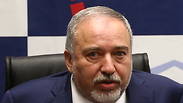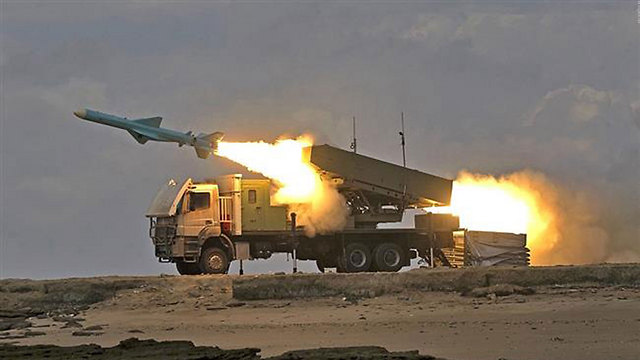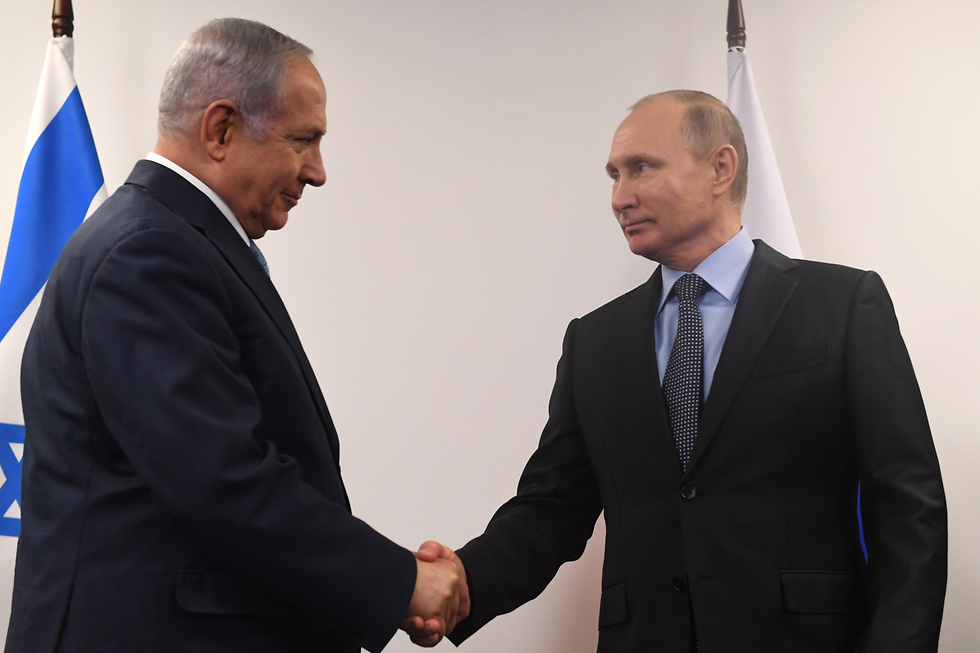

Lieberman’s explicit warning to Iran
Analysis: The defense minister’s unusual statement that ‘Israel is familiar with the people involved in producing missiles’ was a clear message that the Iranians arming Lebanon are in Israel’s crosshairs. So how is Israel working to prevent Lebanon from becoming ‘one big factory for the production of precision-guided missiles’?
Defense Minister Avigdor Lieberman, who addressed this dilemma on Monday, explained that the construction of the factories could be prevented—and not just through bombings.
“I can clarify that we are determined to prevent Iran from entrenching itself in Syria. We are aware of missile manufacturing sites in Lebanon, and we are familiar with the people involved in the production of those missiles,” he said.
“When it comes to Lebanon, we are using all diplomatic leverages and other leverages to prevent the production of missiles, and the last thing I would want is to enter a third Lebanon war. I think we still have enough measures, enough possibilities, and we are exhausting all options. We are determined to prevent Lebanon from becoming one big factory for the production of precision-guided missiles.”
So how is Israel working to prevent it? At the first stage, it will likely exhaust the diplomatic measures with all players in the arena, led by the Russians. If that fails, which seems likely, Israel will probably find other creative ways to prevent Lebanon from turning into an Iranian missile factory. On Sunday, the IDF spokesperson published an unusual op-ed on Lebanese opposition websites, warning Hezbollah and Iran, the residents of southern Lebanon—who are sitting on a powder keg—and the international community that a future attack on Israel would lead to a dangerous flare-up.
On Monday, Lieberman essentially raised the threat level by issuing a clear, personal warning, without any hints, to the Iranians responsible for arming Lebanon, making it clear that from now on they were in Israel’s crosshairs.
Prime Minister Benjamin Netanyahu's meeting with Russian President Vladimir Putin on Monday was aimed at conveying a similar message. Accompanied by Military Intelligence Director Maj. Gen. Herzl Halevi, the Israeli delegation presented Putin with intelligence from Lebanon indicating that Iran is helping Hezbollah turn “dumb” missiles into precision-guided missiles for the purpose of hitting strategic targets in Israel.
The Iranians’ operational logic was the assumption that building the factories in Lebanon would make them immune to an Israeli strike, because—unlike in Syria—the IDF doesn’t strike in Lebanon. If it does strike as part of the unwritten equation vis-à-vis Hezbollah, Hassan Nasrallah might respond and bring about a flare-up.
Israel would rather have the international community intervene to thwart the construction of the factories. We have to wait and see how Putin responds. While his leverages of pressure vis-à-vis Iran may be limited compared to Syria, he still has the power to influence the Iranians to calm the winds of war blowing from Lebanon.

















